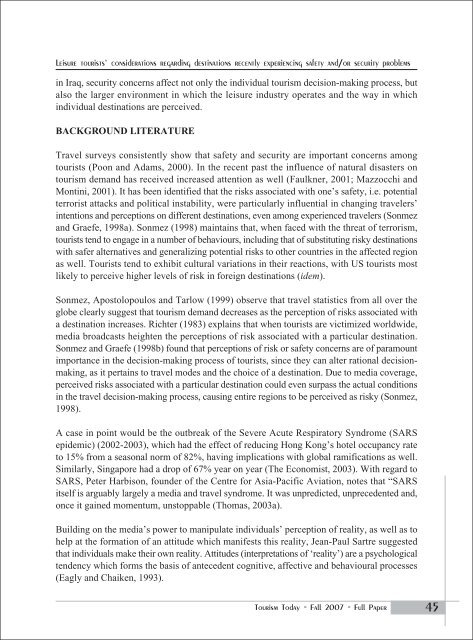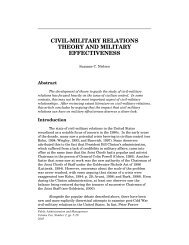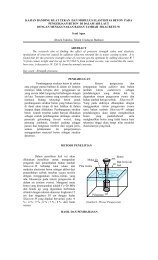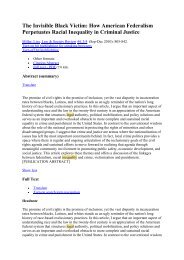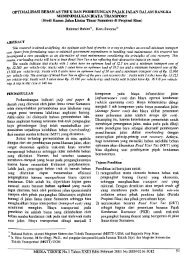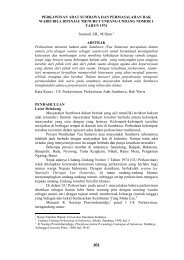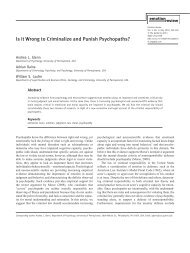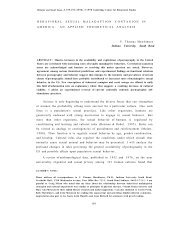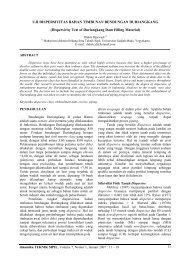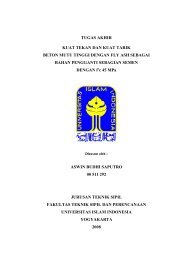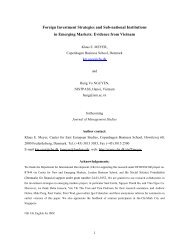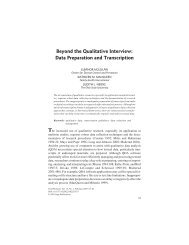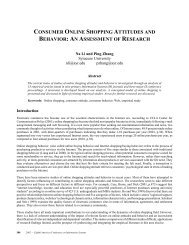Ski – resort and regional development: profile of visitors ... - E-Journal
Ski – resort and regional development: profile of visitors ... - E-Journal
Ski – resort and regional development: profile of visitors ... - E-Journal
You also want an ePaper? Increase the reach of your titles
YUMPU automatically turns print PDFs into web optimized ePapers that Google loves.
Leisure tourists’ considerations regarding destinations recently experiencing safety <strong>and</strong>/or security problems<br />
in Iraq, security concerns affect not only the individual tourism decision-making process, but<br />
also the larger environment in which the leisure industry operates <strong>and</strong> the way in which<br />
individual destinations are perceived.<br />
BACKGROUND LITERATURE<br />
Travel surveys consistently show that safety <strong>and</strong> security are important concerns among<br />
tourists (Poon <strong>and</strong> Adams, 2000). In the recent past the influence <strong>of</strong> natural disasters on<br />
tourism dem<strong>and</strong> has received increased attention as well (Faulkner, 2001; Mazzocchi <strong>and</strong><br />
Montini, 2001). It has been identified that the risks associated with one’s safety, i.e. potential<br />
terrorist attacks <strong>and</strong> political instability, were particularly influential in changing travelers’<br />
intentions <strong>and</strong> perceptions on different destinations, even among experienced travelers (Sonmez<br />
<strong>and</strong> Graefe, 1998a). Sonmez (1998) maintains that, when faced with the threat <strong>of</strong> terrorism,<br />
tourists tend to engage in a number <strong>of</strong> behaviours, including that <strong>of</strong> substituting risky destinations<br />
with safer alternatives <strong>and</strong> generalizing potential risks to other countries in the affected region<br />
as well. Tourists tend to exhibit cultural variations in their reactions, with US tourists most<br />
likely to perceive higher levels <strong>of</strong> risk in foreign destinations (idem).<br />
Sonmez, Apostolopoulos <strong>and</strong> Tarlow (1999) observe that travel statistics from all over the<br />
globe clearly suggest that tourism dem<strong>and</strong> decreases as the perception <strong>of</strong> risks associated with<br />
a destination increases. Richter (1983) explains that when tourists are victimized worldwide,<br />
media broadcasts heighten the perceptions <strong>of</strong> risk associated with a particular destination.<br />
Sonmez <strong>and</strong> Graefe (1998b) found that perceptions <strong>of</strong> risk or safety concerns are <strong>of</strong> paramount<br />
importance in the decision-making process <strong>of</strong> tourists, since they can alter rational decisionmaking,<br />
as it pertains to travel modes <strong>and</strong> the choice <strong>of</strong> a destination. Due to media coverage,<br />
perceived risks associated with a particular destination could even surpass the actual conditions<br />
in the travel decision-making process, causing entire regions to be perceived as risky (Sonmez,<br />
1998).<br />
A case in point would be the outbreak <strong>of</strong> the Severe Acute Respiratory Syndrome (SARS<br />
epidemic) (2002-2003), which had the effect <strong>of</strong> reducing Hong Kong’s hotel occupancy rate<br />
to 15% from a seasonal norm <strong>of</strong> 82%, having implications with global ramifications as well.<br />
Similarly, Singapore had a drop <strong>of</strong> 67% year on year (The Economist, 2003). With regard to<br />
SARS, Peter Harbison, founder <strong>of</strong> the Centre for Asia-Pacific Aviation, notes that “SARS<br />
itself is arguably largely a media <strong>and</strong> travel syndrome. It was unpredicted, unprecedented <strong>and</strong>,<br />
once it gained momentum, unstoppable (Thomas, 2003a).<br />
Building on the media’s power to manipulate individuals’ perception <strong>of</strong> reality, as well as to<br />
help at the formation <strong>of</strong> an attitude which manifests this reality, Jean-Paul Sartre suggested<br />
that individuals make their own reality. Attitudes (interpretations <strong>of</strong> ‘reality’) are a psychological<br />
tendency which forms the basis <strong>of</strong> antecedent cognitive, affective <strong>and</strong> behavioural processes<br />
(Eagly <strong>and</strong> Chaiken, 1993).<br />
Tourism Today - Fall 2007 - Full Paper<br />
45


